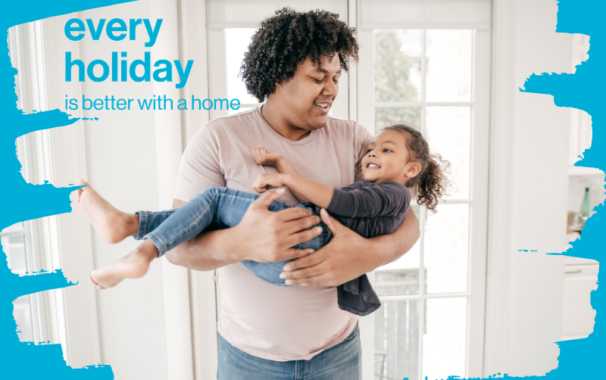
Shelter at home orders, work at home mandates, e-learning from home…this year of pandemic has brought new emphasis on HOME. For the health of your family and that of your community, the best thing you can do is ‘stay at home’.
HOME has certainly taken on a new level of safety and security during a year of pandemic. For many of us, we are so grateful for our home as it has sheltered us from a virus, and allowed us to continue to work and learn during a time of crisis. For others – those already facing housing instability and unsuitable living conditions – this year of pandemic has only worsened the struggles they face in the place they call home.
Jonathan Reckford, CEO of Habitat for Humanity International, and Megan Sandel, MD, MPH at the Boston University School of Medicine, share, “A healthy home is a vaccine that provides both immunity and resilience. It literally prevents disease. A safe home can prevent mental health and developmental problems, a decent home may prevent asthma or lead poisoning, and an affordable home can prevent stunted growth and unnecessary hospitalizations.”
Growing up in a stable, decent, affordable home can have a powerful effect on children. Studies draw a straight line between the quality, location and affordability of housing and a child’s ability to thrive. On the other hand, low-quality housing — often accompanied by pests, poor ventilation, lack of heat and other detrimental factors — is strongly linked to physical health problems for children.
In addition, the stress that parents experience due to living in poor conditions can translate into emotional and behavioral problems in their children. Children whose families who are forced to move frequently in search of better, more affordable living situations often struggle. A stable place to call home provides a secure environment and adequate space to study and think. Better lighting, room for a small desk, a parent’s ability to devote time to helping with homework — all of these can lead to improved academic outcomes.
In our local community, we see many families struggling to afford rent for inadequate and unhealthy homes for their children. The average rent for a home in Muncie is $898. Almost 80 percent of residents who rent housing live under the poverty level, and over 31 percent of children up to age 17 live in poverty in Delaware County. That’s what makes a Habitat home a game changer.
The average monthly mortgage payment (including taxes and insurance) for a Habitat home is $273. Families who partner with Habitat are not ‘recipients’ of services – they are true partners in the process. The path to homeownership for many families who partner with Habitat can be a 12-18-month process. During that time, the family is attending education classes (home maintenance, mortgage loan process, budgeting, etc.) to equip them for successful homeownership. Partner families also invest significant hours, along with family and friends, working at construction sites, volunteering at our restore to help build their home ‘sweat equity’. This can be very challenging for a family when they layer education courses and ‘sweat equity’ hours on top of full-time jobs and parenting of children. Families also save for a down payment on the home, and sign a no-interest mortgage for the appraised value of the home.
At Habitat for Humanity, we are committed – now, more than ever – to life-changing investments in housing to give families the healthy foundations they need to build their futures.








